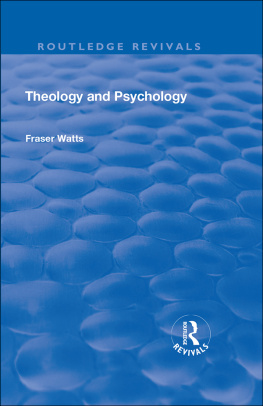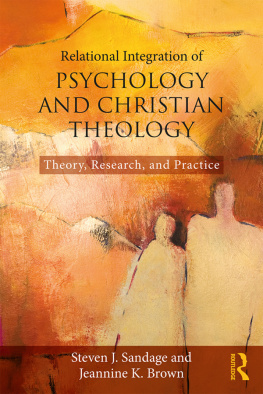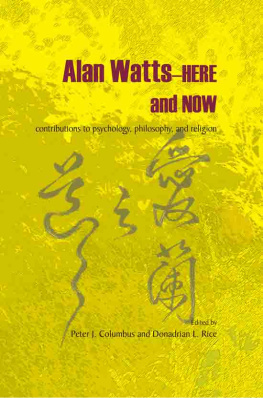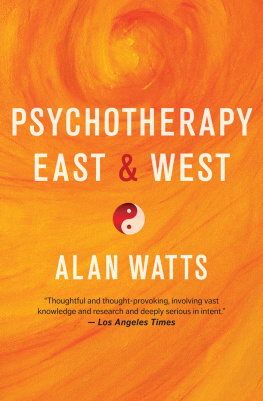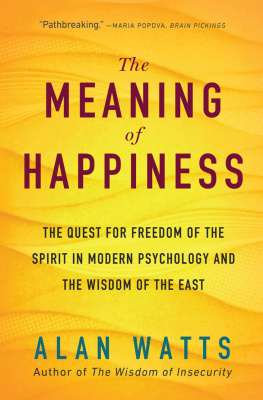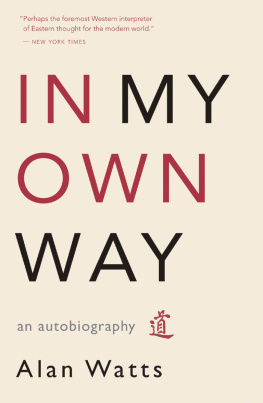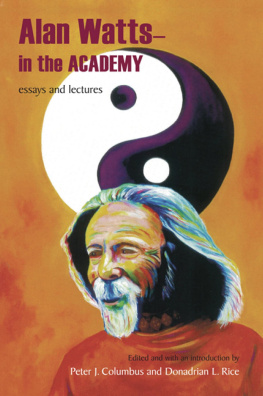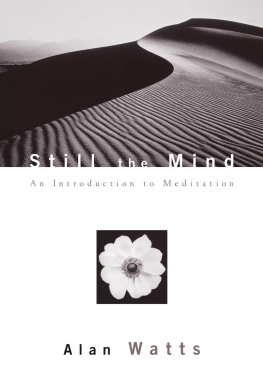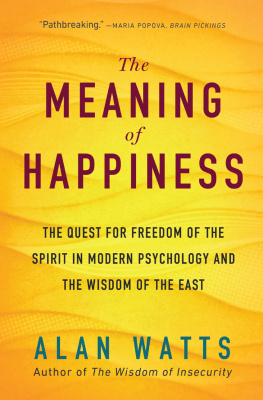THEOLOGY AND PSYCHOLOGY
Many people are now interested in the relationship between religion and science, but links between Christian belief and psychology have been relatively neglected. This book opens up the dialogue between Christian theology and modern scientific psychology, approaching the dialogue in both directions. Current scientific topics like consciousness and artificial intelligence are examined from a religious perspective. Christian themes such as Gods purposes and activity in the world are then examined in the light of psychology. This accessible study on psychology and Christian belief offers students and general readers alike important insights into new areas of the science and religion debate.
Fraser Watts is Starbridge Lecturer in Theology and Natural Science at the University of Cambridge, UK, and author of many books including Christians and Bioethics (SPCK); Science Meets Faith (SPCK), Psychology for Christian Ministry (Routledge), and The Psychology of Religious Knowing (CUP).
Ashgate Science and Religion Series
Science and religion have often been thought to be at loggerheads but much contemporary work in this flourishing interdisciplinary field suggests this is far from the case. The Ashgate Science and Religion Series presents exciting new work to advance interdisciplinary study, research and debate across key themes in science and religion, exploring the philosophical relations between the physical and social sciences on the one hand and religious belief on the other. Contemporary issues in philosophy and theology are debated, as will prevailing cultural assumptions arising from the post-modernist distaste for many forms of reasoning. The series enables leading international authors from a range of different disciplinary perspectives to apply the insights of the various sciences, theology and philosophy and look at the relations between the different disciplines and the rational connections that can be made between them. These accessible, stimulating new contributions to key topics across science and religion will appeal particularly to individual academics and researchers, graduates, postgraduates and upper-undergraduate students.
Series Editors:
Roger Trigg, Department of Philosophy, University of Warwick, UK
J. Wentzel van Huyssteen, Chair in Science & Religion,
Princeton Theological Seminary, USA
First published 2002 by Ashgate Publishing
Reissued 2018 by Routledge
2 Park Square, Milton Park, Abingdon, Oxon 0X14 4RN
711 Third Avenue, New York, NY 10017, USA
Routledge is an imprint of the Taylor & Francis Group, an informa business
Copyright Fraser Watts 2002
All rights reserved. No part of this book may be reprinted or reproduced or utilised in any form or by any electronic, mechanical, or other means, now known or hereafter invented, including photocopying and recording, or in any information storage or retrieval system, without permission in writing from the publishers.
Notice:
Product or corporate names may be trademarks or registered trademarks, and are used only for identification and explanation without intent to infringe.
Publishers Note
The publisher has gone to great lengths to ensure the quality of this reprint but points out that some imperfections in the original copies may be apparent.
Disclaimer
The publisher has made every effort to trace copyright holders and welcomes correspondence from those they have been unable to contact.
A Library of Congress record exists under LC control number: 2001046049
ISBN 13: 978-1-138-74315-1 (hbk)
ISBN 13: 978-1-315-18193-6 (ebk)
To Susan Howatch
In this book, I approach the interface between theology and psychology by looking at each discipline from the perspective of the other. This includes a religious perspective on several current hot topics in psychology such as evolution, neuroscience, and computer intelligence. I also consider theological topics like divine action, salvation history and eschatology, in each case using the psychological perspective in a different way. At the centre of the book is the psychology of religious experience, a rich interdisciplinary topic that raises a host of fascinating issues.
In interdisciplinary work it is all too easy to lack competence in one discipline or the other, but I am grateful to have had the unusual opportunity to work in both fields. After 25 years in psychology, including a long and rewarding period with the Medical Research Council, I had the opportunity to move to the Faculty of Divinity at the University of Cambridge. I am more grateful than I can say to Susan Howatch for her endowment in Cambridge of the Starbridge Lectureship in Theology and Natural Science, which I have the privilege of being the first holder.
I have benefited from conversation and collaboration with a great many people in writing this book. In particular, it has been enormously helpful to talk regularly with John Polkinghorne about issues in science and religion. I am also greatly indebted to my former student Thomas Dixon from whom I have learnt much more than I could reasonably have expected, and to Liz Gulliford who provided excellent help in the preparation of this manuscript. To them, and to the many other people who have helped me on my way, I am most grateful.
Fraser Watts
Cambridge
May 2002
Several of the chapters in this book are derived from material which has been published elsewhere, and is re-used here with permission. I am grateful to:
T. & T. Clark for permission to re-use in material from my chapter on The multi-faceted nature of human personhood: psychological and theological perspectives, published in N.H. Grgersen, W.B. Drees and U. Gorman (eds) The Human Person in Science and Theology, 2000.
Oxford University Press for permission to re-use in material from my chapter Towards a Theology of Consciousness, published in J. Cormwell (ed.) Consciousness and Human Identity, 1998.
Imprint Academic for permission to re-use in my article Nothing but a pack of neurones, published in the Journal of Consciousness Studies,1, 275-9, 1994.
Templeton Foundation Press for permission to re-use as , my chapter on Artificial Intelligence, published in R.L. Herrmann (ed.) God, Science and Humility, 2000.
Vatican Observatory and the Center for Theology and Natural Science, Berkeley, for permission to re-use as the basis of my chapter on Cognitive neuroscience and religious consciousness, published in R.J. Russell, N. Murphy, T. Meyering and M. Arbib (eds) Neuroscience and the Person. Vatican City State, Vatican Observatory and Berkeley, Center for Theology and Natural Science.
Trinity Press International for permission to re-use as part of my chapter on Subjective and Objective Hope, published in J. Polkinghorne and M. Welker (eds) The End of the World and the Ends of God, 2000.
Methodist Publishing House for permission to re-use as part of my article Hell on Earth, published in Epworth Review, 22, 80-87, 1995.
Modern Churchpeoples Union for permission to re-use as part of material published in Modern Churchman, New Series XXXIII, No 2, 11-19, 1991.
All the above material has been revised in the context of the present volume.
Fraser Watts
This book is concerned with the dialogue between psychology and Christian theology. Theology is the rational reflection of the Christian tradition, and its dialogue with psychology focuses particularly on human nature.

